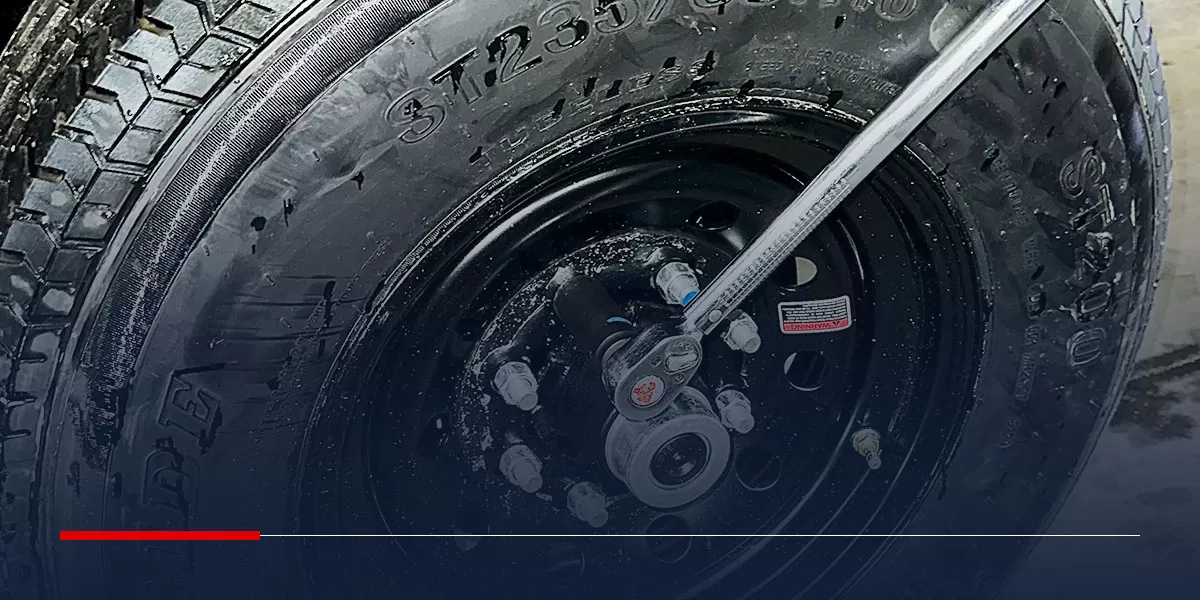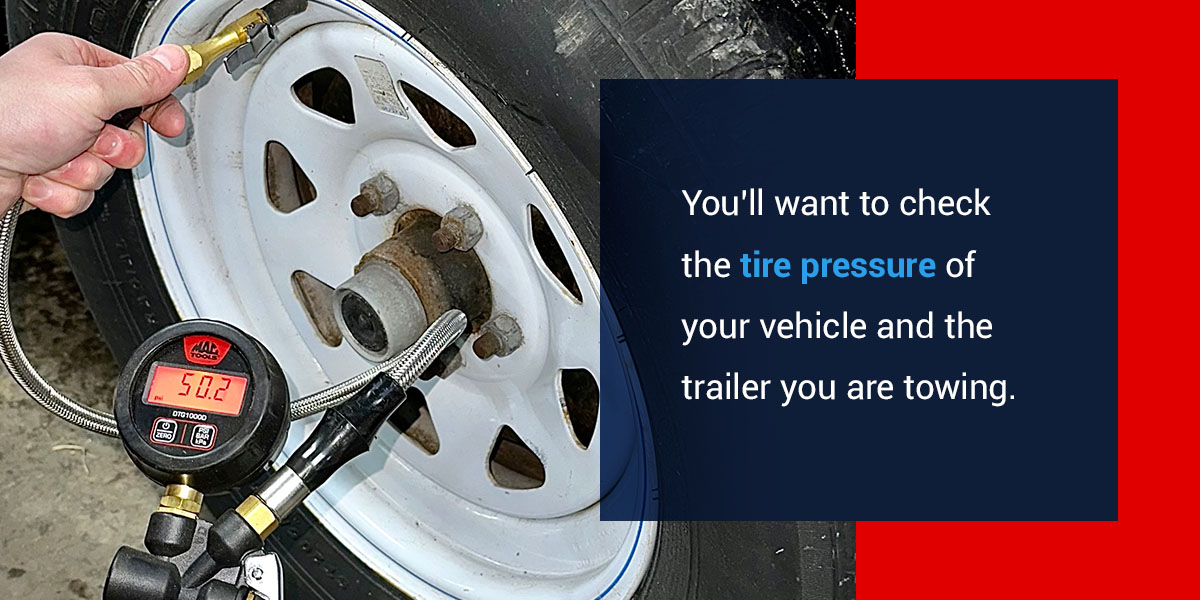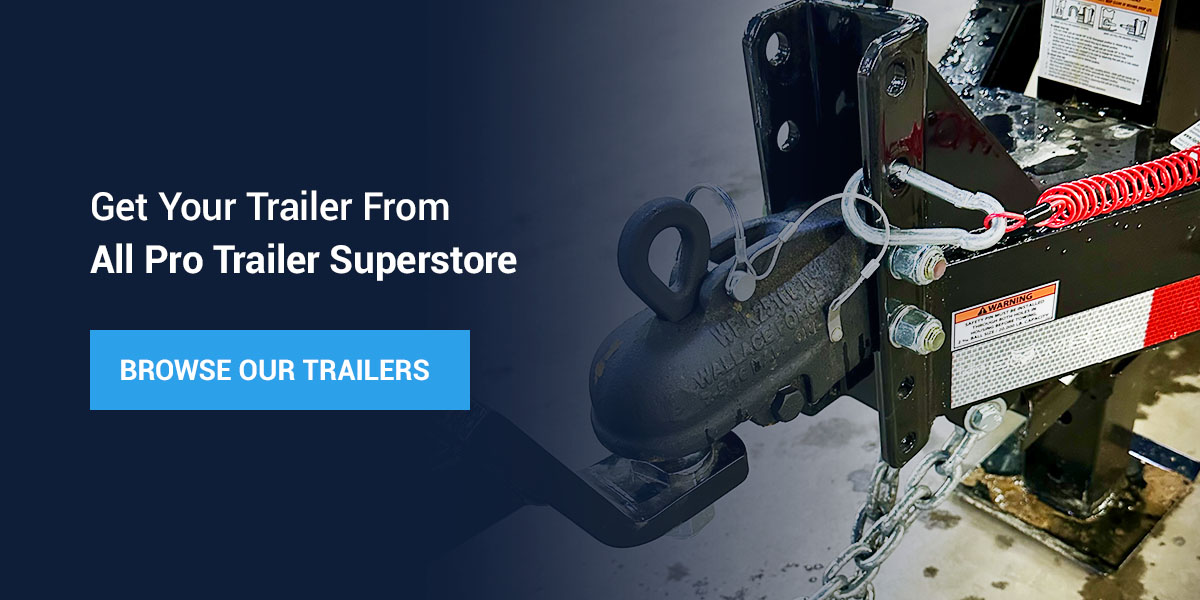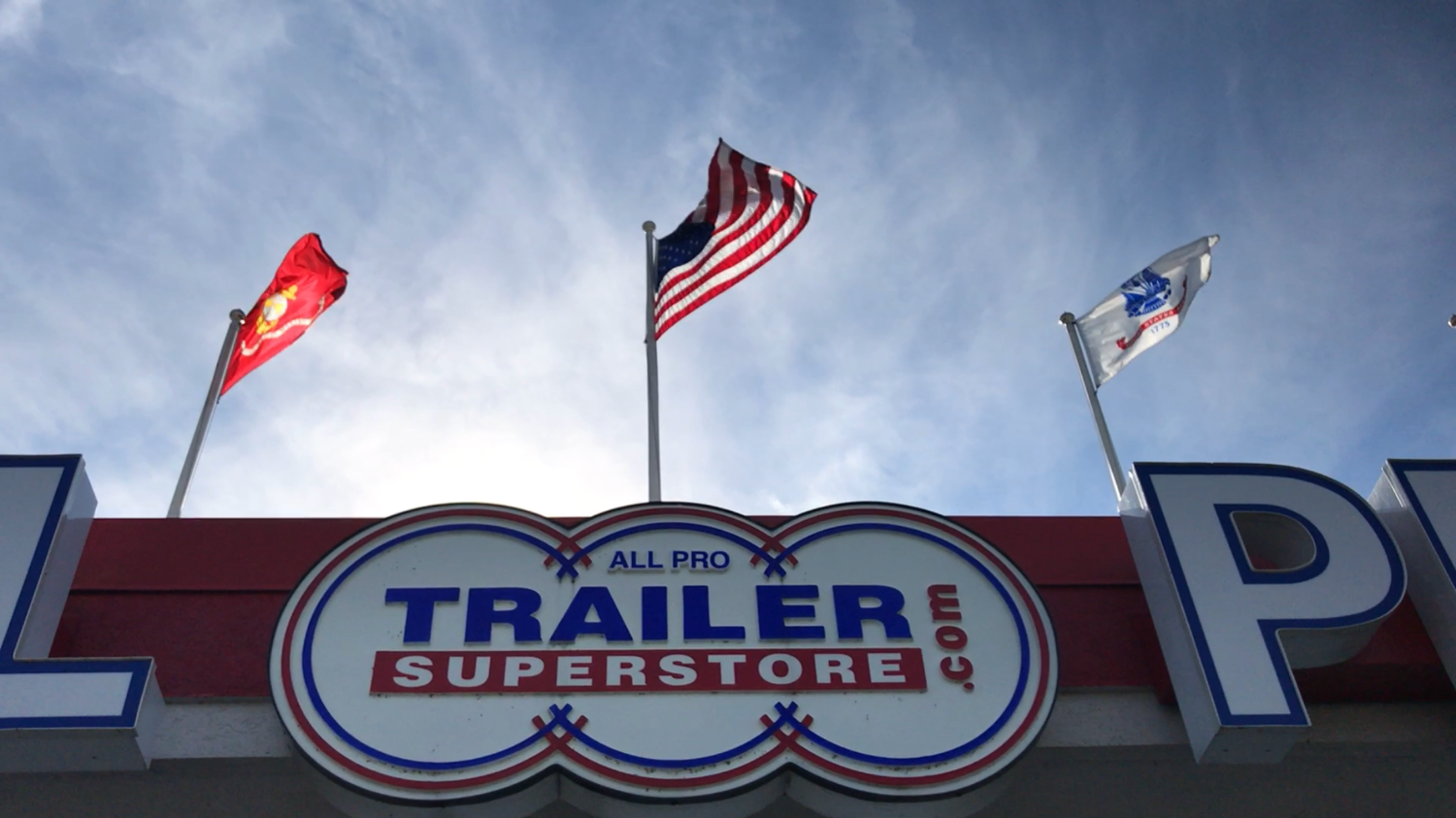Know Before You Tow: Preventing Problems on the Road
Nov 05, 2015Last Updated on September 30, 2024 by Alex Bobb
Last Updated on September 30, 2024 by allprotrailersuperstore
Transporting large or multiple items long distances can be a hassle, especially if the load can’t fit inside your vehicle. If you’re accustomed to hauling numerous heavy items, there’s a strong chance you’ve already purchased a trailer. For better or worse, towing a trailer is a completely different experience from driving your vehicle normally.
When towing a trailer, you should practice safe trailer towing and drive carefully. You’ll want to inspect your trailer before beginning your trip. Here are some tips for towers to help you prevent problems while on the road.
Checking Over Your Trailer
When it comes to trailers and towing, you must ensure all the parts on your trailer are working properly. For instance, if the brake lights don’t work, you are increasing your risk of an accident. To ensure your safety, you need to check over your trailer before setting out on a trip. Here are some of the various parts you’ll want to examine.
Lug Nut and Bolt Tightness
Something coming loose while you’re driving could not only necessitate time-consuming and costly repairs, but it may also dump your cargo onto the road, potentially damaging it or injuring someone. That is why it is crucial that you double-check the bolts and lug nuts on your trailer to ensure that they are all appropriately tight.
Lug nuts and bolts are prone to loosening after you mount a wheel to a hub. If you have to change a tire, a good practice is to recheck the lug nuts and bolts after 10, 25 and 50 miles of driving. This allows you to detect loose bolts and nuts before they become a serious problem. If they remain tight after 50 miles, you should be good to go for the rest of your trip.
Equipment That Connects the Trailer and Vehicle
When considering what you need to tow a trailer, the main components will include a hitch receiver, pin and clip, ball mount trailer hitch ball and a wiring harness. All of this equipment helps connect the trailer to your vehicle safely. Before you leave, you’ll want to check these parts and the coupler, hitch and drawbar to confirm that they are securely fastened and won’t detach during transit. You should also double-check that the contents of your trailer are tied up tightly and cannot be jarred-free. In addition, the stabilizers, tongue support and trailer jacks all need to be in their upright, secured positions.
Tire Pressure
You’ll want to check the tire pressure of your vehicle and the trailer you are towing. A blowout on the highway, or worse, on a country road miles from anywhere, will slow you down and cost money to fix. Check to ensure that your trailer and vehicle have the correct tire pressure before leaving.
Brakes
Your brakes are one of the most important safeguards you have against an accident. A brake failure could be disastrous if someone cuts you off unexpectedly or you need to stop at a light. Test both your regular brakes and the trailer brakes to ensure they are tight and responsive.
Lights
Visibility is always important when towing, for both you and the other people on the road. If the trailer’s lights aren’t working and you make a turn or stop suddenly, the person behind you may accidentally hit you. Hook up the whole ensemble and test out the lights before setting off so that you don’t cause a collision or get a ticket.
Wires
On a related note, you should keep the wires connecting your vehicle and trailer from hanging too low or being connected too tightly. Either could lead to a malfunction when driving, which could cause everything from brake failures to the lights going out on your trailer.
Emergency Equipment
You’ll obviously need to have equipment on hand in case of a problem. Make sure to have the basics:
- A spare tire or tires
- A flashlight
- Flares or emergency hazard signs
- A jack stand
- Wheel chocks to stabilize your vehicle
Consider installing a breakaway kit, as it’s always a good idea and may even be required, depending on where you live and where you’re traveling to. A breakaway kit is a device that senses when the trailer decouples from your vehicle and automatically slows to stop it. This smart preventative measure can save lives, as well as your cargo.
Other Concerns
2After inspecting your trailer and vehicle, it’s time to consider the other aspects of driving while pulling a trailer.
Wait Time and Braking
Driving with a trailer requires more care and finesse than driving your vehicle because it’s twice as long. When you need to pass other vehicles or change lanes, you’ll want to give yourself more room than you think you need, so you don’t sideswipe other drivers.
When turning corners, you need to swing out wider, so your trailer has room to clear the turn. Reversing with a trailer requires more exaggerated movements. You’ll want to focus on the direction of the hitch ball, not the trailer. Check out this guide for more tips when driving with trailers.
Braking is another aspect of driving that’s different when hauling a trailer. Slamming on your brakes will cause you to begin jackknifing. Jackknifing occurs when the trailer pushes your vehicle to one side. To prevent this, ensure you slowly and steadily decrease your speed, so the trailer can maintain its stability and balance.
Additionally, the combined weight of your trailer and the load it carries will affect your momentum. Heavier objects require a greater amount of time to start and stop moving. Be sure to grant yourself more time to come to a complete stop — otherwise, you may find yourself stuck in the middle of an intersection.
Forcing the trailer to move quickly can cause it to sway, which is dangerous for the vehicles around you. If the trailer begins to sway, pull over slowly to steady it.
Cargo Weight and Distribution
When towing, you should always ensure that your vehicle can handle the weight of your cargo. However, you’ll also need to distribute the weight as evenly as possible over the space you have so that it isn’t pulling your vehicle to one side or creating dangerous imbalances.
Route Restrictions
Check your intended route for any height and weight limitations, or other regulations that might restrict your access and delay you. For instance, bridges will have height limits on them, and it’s harder to turn around in the middle of the highway than to plan your route ahead of time.
Get Your Trailer From All Pro Trailer Superstore
Hauling a trailer can be an incredibly convenient means of transporting materials without having to pay another party to do it for you. As long as you follow the rules of the road and remain aware of your trailer’s specific needs, you’ll be sure to get to your destination without a problem.
If you’ve yet to find a trailer, browse our high-quality trailers at All Pro Trailer Superstore. We are a one-stop full-service trailer provider with over 30 years of experience. Our affordable prices and convenient financing options can help you purchase the trailer you want and need.





